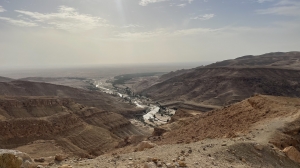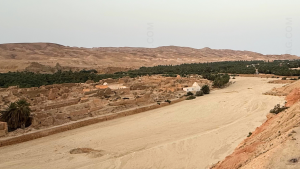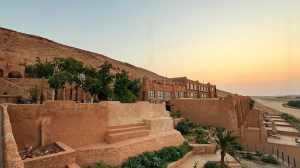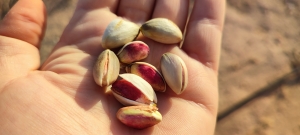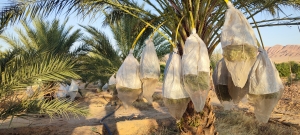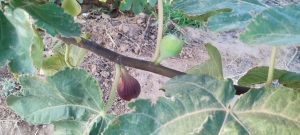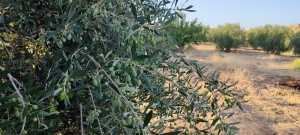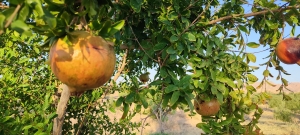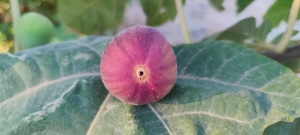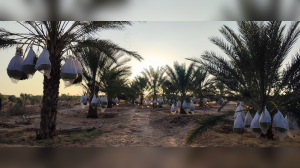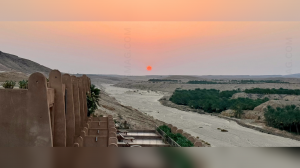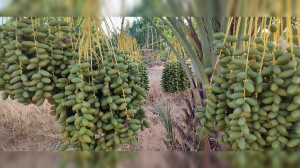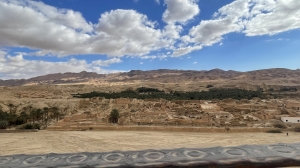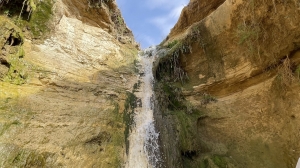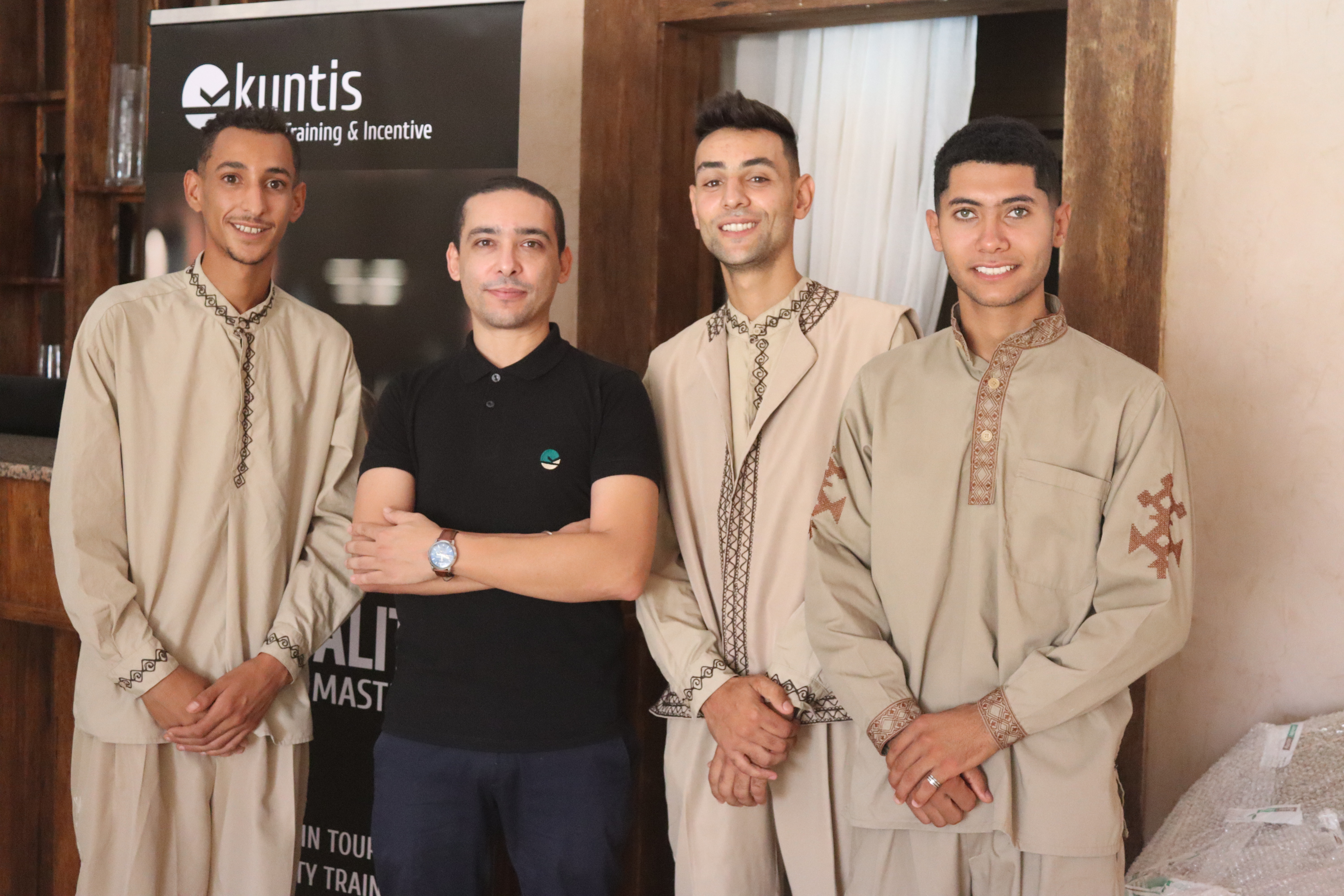Beneath the relentless sun of southwestern Tunisia, where the desert stretches with austere beauty, the majestic peaks of the Atlas Mountains rise in ochre cliffs and rugged canyons. Nestled in this grand landscape, the oasis of Tamerza has long captivated travellers. Its palm groves, orchards, and cascading waterfalls draw curious eyes and nature lovers every year. Yet behind this postcard-perfect scenery lies another, more discreet yet equally extraordinary story: that of a sustainable farm born from a bold vision.
One Man’s Dream Against the Desert
It all began in 2012. After thirty years of working abroad, Ben¹ returned to his homeland with a dream firmly rooted in his heart: to transform barren, arid land into a fertile, nourishing, and open space. Before him lay rocky soil, devoid of water, shade, or promise.
Armed with nothing but perseverance and his savings, he planted 400 olive trees and 100 date palms.
t was an act of faith," he recalls. "Many thought it was impossible, but I knew the land would respond if treated with care and respect."

Overcoming the Impossible
One of the earliest hurdles was irrigation. With no access to heavy drilling equipment, water had to be trucked in for years. It wasn’t until 2017 that Ben was able to install a deep water pump powered by solar energy, build a reservoir, and implement a water-saving irrigation system. Today, the farm operates with a simple valve turn—efficient, sustainable, and low-maintenance.
The terrain itself posed another challenge. Uneven and rocky, it required heavy machinery to level and prepare for planting. But Ben persisted, expanding the farm to 9 hectares and cultivating a diverse orchard of pistachios, almonds, apricots, peaches, figs, citrus, pomegranates, and grapes—all grown organically, without pesticides or chemicals.
In 2023, Ben added another 100 date palms to the farm, drawn by the irresistible taste of Deglet Nour—a prized variety known for its light color, translucent flesh, and honey-like sweetness. These dates not only enrich the farm’s offerings but also reflect Ben’s commitment to cultivating what he loves most.
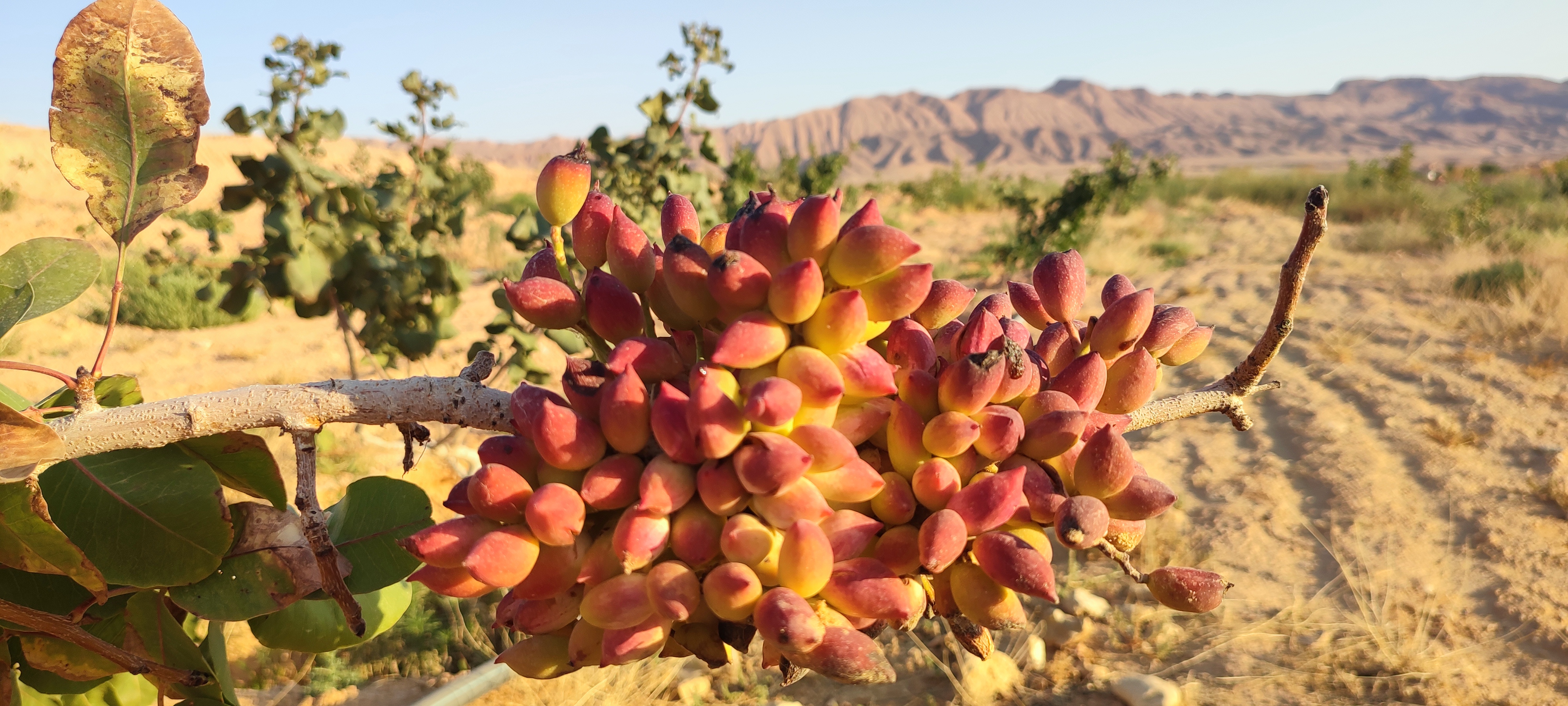 Ain Karma Tamerza: where pistachios paint an unexpected palette of colours against the desert.
Ain Karma Tamerza: where pistachios paint an unexpected palette of colours against the desert.
Ain Karma Tamerza is more than a personal project—it’s a vision for a greener future. The farm uses solar power to pump water, organic fertilizers to nourish the soil, and drip irrigation to minimize waste. It’s a haven for birds, a source of oxygen, and a living classroom for sustainable agriculture.
Every plot becomes a small ecosystem where humans and nature relearn to collaborate.
Ben’s ultimate goal? To produce enough olive oil for personal use, sharing, and local sale—while inspiring others to believe that even the harshest landscapes can bloom with care and commitment.
My goal is not profitability but example," Ben insists. "If barren land can come alive here, others can follow this path elsewhere."
A Unique Visitor Experience

Ain Karma Tamerza is also a welcoming space for travellers. In the heart of the Atlas Mountains, visitors discover an unexpected oasis, a green breath amid the mineral desert.
Visitors to Ain Karma Tamerza are welcomed into a serene, green sanctuary where they can:
• Learn firsthand about organic farming and sustainable irrigation
• Explore the orchard and taste seasonal fruits straight from the trees
• Discover how solar energy powers the farm’s operations
• Hear Ben’s story and understand how passion can turn the impossible into reality
Whether you're a traveler seeking eco-conscious experiences or a dreamer looking for inspiration, Ain Karma Tamerza offers a rare glimpse into what’s possible when love for nature meets unwavering dedication.
Here, tourism takes on a new meaning: it becomes immersion, learning, and sharing... Tamerza: Berber village (Photo taken from Tamerza Palace)
Tamerza: Berber village (Photo taken from Tamerza Palace)
By opening his farm to visitors, Ben goes beyond agriculture. He transforms Ain Karma Tamerza into a living school of sustainability, where every step through the orchard becomes a lesson. The farm attracts curious travellers from Tunisia and beyond, eager to understand how arid land can flourish again.
It is also a model of ecotourism and agritourism: instead of merely consuming nature’s gifts, the visitor participates in its story, meets its actors, and leaves with lasting inspiration.
 The vineyards of Ain Karma Tamerza, a promise of life.
The vineyards of Ain Karma Tamerza, a promise of life.
A Life Lesson in the Heart of the Atlas
At the end of the visit, eyes wander over the mountains surrounding the Tamerza oasis—a reminder of the harshness of the climate and the fragility of natural balances. Each tree stands as a silent victory, a patient resistance to aridity.
This stubborn struggle to fertilise the land resonates with Tunisian literature. In The Dam², Mahmoud Massaâdi³ recounted the story of Ghaylène, a man who, defying the divine law of drought, declared: “I will fertilise the land.” His struggle was existential, almost tragic.
Ben’s journey follows a similar path, but with a new horizon: sustainability. Where Massaâdi described a solitary quest, Ben responds to the desert with concrete solutions—solar energy, drip irrigation, organic farming—and a vision shared with visitors.
Thus, Ain Karma Tamerza is not just the story of a man and his orchard; it is a universal message: a future where tourism, agriculture, and sustainability advance together, allowing the land to bloom once more.
Ben’s warning resonates simply and powerfully:
Go green, or you have no home to go."

¹ Ben (pseudonym): An engineer and nature enthusiast, he worked abroad for over thirty years. His savings enabled him to fund his agricultural project at Tamerza, which he intended to be exemplary in sustainability.
² The Dam — “السّد”: Published in 1955, this existentialist novel by Mahmoud Massaâdi features Ghaylène, a man determined to defy drought and “fertilise the land” despite divine prohibition. The work is considered one of the most profound modern Arab meditations on the human condition, between rebellion, freedom, and destiny.
³ Mahmoud Massaâdi (1911–2004): Tunisian writer and thinker, a major figure in contemporary Arabic literature. His novel The Dam (1955) explores man’s existential struggle against the forces of nature and fate. (Mahmoud Massaadi on Wikipedia )




